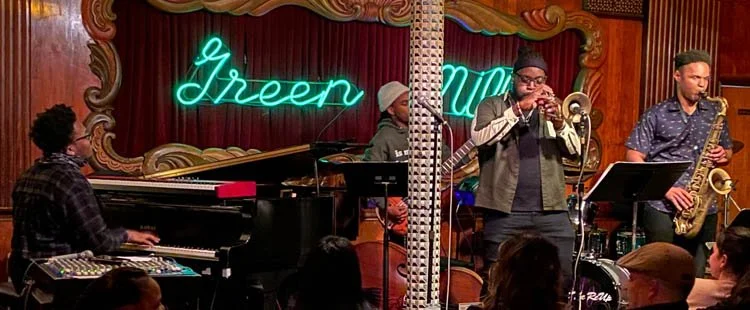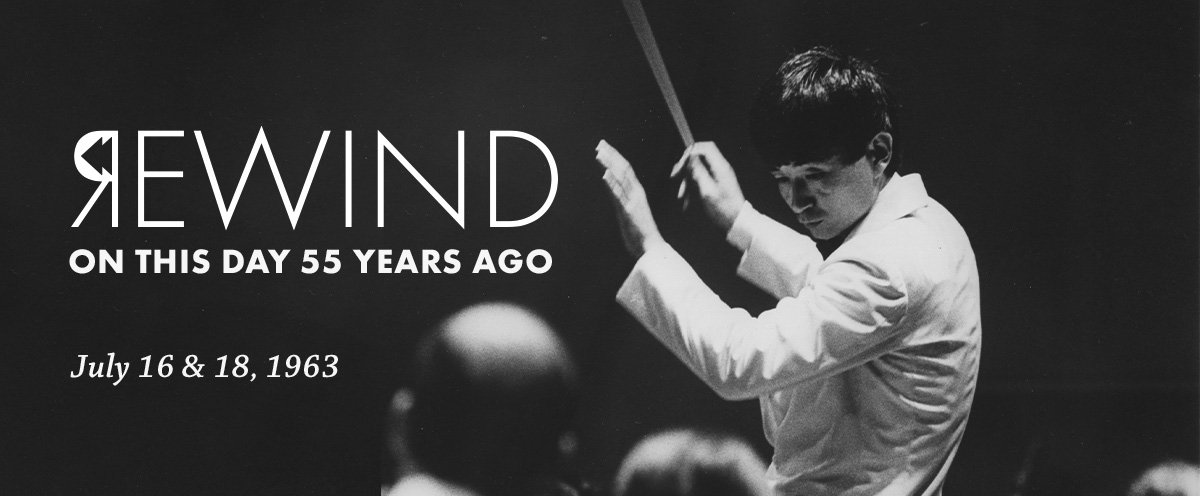The especial attention from “America’s music teacher” of course drew the attention of other ensembles. Ozawa made debuts with the orchestras of San Francisco, Minneapolis, Detroit, and Montreal between 1962 and 1963. During the latter summer, he received a call similar to that which Bernstein received in 1943: the conductor for the Chicago Symphony Orchestra’s concerts at Ravinia has suddenly taken ill at the 11th hour, and could Ozawa come conduct his concerts. Even with a program inherited from Georges Prêtre, comprising Beethoven’s Third Leonore Overture, Grieg’s Piano Concerto, and Dvořák’s “New World” Symphony, Ozawa appointed himself well in his Ravinia and CSO debuts on July 16, with the Chicago Daily News readily recognizing the influence of “Leaping Lenny”: “While conducting, he [Ozawa] slides easily from waltz to rhumba to twist to a modified version of the Limbo … however, he remains in control of the situation. Ozawa can make an orchestra do almost anything he wants … it would be hard to name a conductor of his age more gifted, and it will be fascinating to see what becomes of him.”









